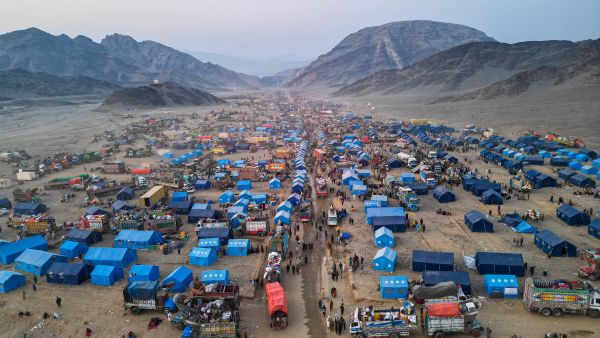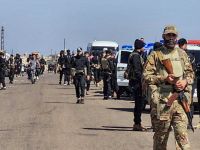ALBAWABA - Citing the UNHCR, Médecins Sans Frontières (Doctors Without Borders - MSF) said that 1.5 percent of the world population is forcibly displaced from their homes, leading to dire conditions as they try to adapt to their new surroundings.
In a post on Instagram, MSF stated that "several countries and regions are experiencing crises driving displacement due to war, persecution, instability, climate change, or natural disasters".
MSF assured that their teams are committed to serving the medical and mental health needs of refugees and other people on the move, however, they are met with difficulties as wars continue to tear through various parts of the world.
The report combined statistics from several countries, which are facing some of the most dire displacement crises, emphasizing the need for immediate action from other international organizations and governments.
Sudan
The power struggle between the Sudanese Armed Forces and the RSF in April 2023 has dislocated over 9 million people, resulting in the world's worst displacement disaster.
Nearly 2 million people have fled to neighboring countries including Chad, South Sudan, the Central African Republic, Egypt, and Ethiopia. This includes refugees and returnees who are returning to their place of origin after first fleeing to Sudan for protection from earlier wars.
Many camps that house refugees and displaced people lack the necessary supplies to support the growing population. Many Sudanese refugees in Chad, for example, lack a consistent food supply. Over 1,500 patients, all under the age of five, were hospitalized to an MSF feeding program in Sila province due to severe malnutrition.
Libya
According to the UNHCR, at least 66,900 individuals had arrived in Europe across the Mediterranean Sea by mid-June 2024, with an estimated 631 missing or believed dead.
Libya is an important port for immigration boats attempting the Mediterranean Sea passage. Many refugees seeking protection on European beaches are forced to wait in Libya for months or even years, either accumulating money for a boat ticket or being held in arbitrary custody.
Refugees, asylum seekers, and migrants have been attacked, sexually abused, beaten, and killed in detention camps. They have also been routinely denied the most basic humane living circumstances, such as adequate access to food, water, sanitation, and medical treatment.








